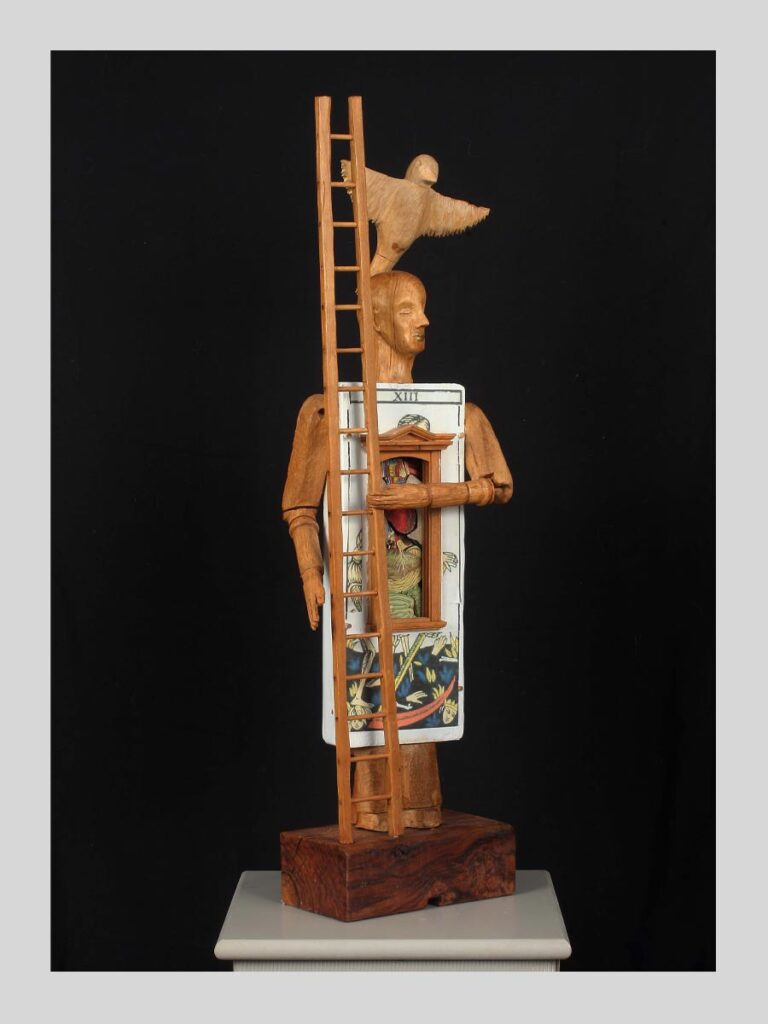9. Inpatient Hospice Rounds

The last night that she lived,
It was a common night,
Except the dying: this to us
Made nature different.
We noticed smallest things,
Things overlooked before,
By this great light upon our minds
Italicized, as ‘twere.
— Emily Dickinson
This has been my first weekend covering the inpatient hospice unit. I suppose that I secretly hoped for a place of ecstatic mystical death, but this has been more like death–row than St. Theresa of Avila.
This weekend, everyone is waiting: some with resignation, some with anticipation, some with fear. And some have that deep peace and acceptance for which you hope. Covering patients for a weekend is not the same as knowing someone well. You make sure all the physical aspects are cared for, pain, nausea, constipation controlled. You check how things are going emotionally – as best you can. But each patient is a deep mystery. You really don’t know what their lives have been about, how this death at this time fits in to the arc of a life – time. Somber: it is a somber place.
An 84-year-old woman dies during the night. Apparently, she had encephalitis as a child, with its attendant brain damage, and was now a ward of the state. She had the mental age of a seven-year-old. I saw her so sweet and innocent, holding a stuffed animal. Agitated near the end, I think I increased her Ativan dose. But the social worker came during the night and held her hand as she lay dying. She said that squeezed her hand in acknowledgement of her presence. The social worker came in because she said that “no child should die alone.”
A man with terminal Parkinson’s disease died. I tried to talk to him on morning rounds. He couldn’t speak very well. Secretions gurgling around his vocal cords gave his speech an underwater quality. His son came in as I was trying to understand him and he said that he couldn’t understand him either. He said that when you do understand him, he doesn’t make sense 90% of the time. He was loud and clear when I asked him how he was doing, though. He said, clear as a bell, “Terrible.” I hope that his death was a relief and a release for him.
A man waits with pancreatic cancer. He takes nothing by mouth. He is interested in what will come next. A woman wants to die because she misses her deceased husband, and she believes they will reunite after her death. A man of 90 says he is ready. He hopes it will be over in a gasp or two. He has critical aortic stenosis and has just survived a heart attack. He says that he has understood for a long time the implications when he passed Greenwood Cemetery that everyone dies. He is ready and in his “readiness” there is still an adventurous spirit. A man of 63, fresh craniotomy scar, can only shake his head yes and no, but he is comfortable with his family at the bedside. His body looks too young, too healthy, for him to be dying of a glioblastoma.
Three elderly chemotherapy induced bald patients are asleep or comatose in their beds, reminding one of newborns sleeping in their cradles. Not wanting to disturb their peace, my physical examination consists of simple touches. In one room classical music plays on a patient’s cassette tape machine. There is a sacred feeling.
I hope that this life time is only a part of the soul’s journey and that what looks like an end is also a beginning. Reconfigured this way, the hospice unit seems closer to the obstetrics unit than any other place in the hospital: the entrance and exit points to this world, the arrivals and departures sections of the “airline terminal” of the soul.
I leave, feeling intensely the cold wind on my face as I walk in the hospital parking lot. From some depth a thirty-year-old memory arises. It is of the death of my first patient as a medical student during my internal medicine clerkship. The woman died in the Intensive Care Unit, after a futile, all out resuscitation effort. I was moved then by the drama and solemnity of her death and the noble and heroic attempts of the resuscitation effort in which I played a very small role. However, I was even more awed by the fact that we just went from there to lunch, like nothing had happened. At the nurse’s station a radio was on and the rock and roll “hits” just played the whole time. What may have been an entrance into eternity for someone else, had not even registered on the “radar screen” of the ICU, let alone the “world” at large, for more than a few moments. I learned then, as today, that life goes on: it always has.
But now, my senses are heightened, “italicized” as I start the car and drive back home. The sacredness of it All blows in the cold Chicago wind as it burns my face and wakes me up.